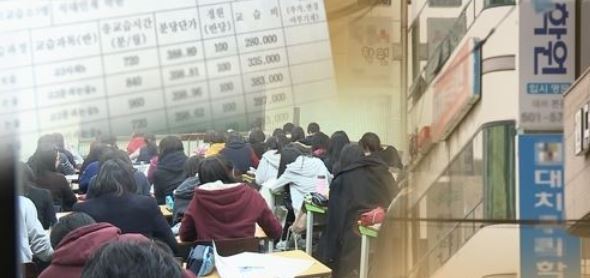Tax write-offs for education costs intended to help low-income families are helping the rich more, data showed Tuesday.
An analysis provided by the National Assembly's finance committee said tax exemptions in the education category this year are to reach 1.18 trillion won ($1.07 billion) and increase to 1.32 trillion won next year. The amount has been growing annually, from 1.08 trillion won in 2014 to 1.15 trillion won in 2015 and 1.16 trillion won last year.Households are given a number of tax exemptions for spending on education to ease the burden on families who enroll their children in cram schools and pay for private tutoring in the hope of sending them to good schools.
The data, however, indicated that such tax write-offs were benefiting the rich more than average households.
In 2015, exempted tax per taxpayer earning less than 30 million won a year came to 734,000 won. For those with an annual salary of between 30 million and 60 million won, the exemptions totaled 2.1 million. For those earning between 60 million and 100 million won, the write-offs were 3.49 million won.
Tax benefits for individuals earning more than 100 million won came to 4.6 million won.

(Yonhap)
Experts say the imbalance in benefits comes from how the exemptions are provided. The high income households who send their children to expensive private or special schools can get the maximum write-offs allowed, while low-income families whose children attend regular schools by comparison do not receive the same level of exemptions.
Data showed that taxpayers who earn 150 percent or more than average income were able to lower their tax rates by 0.5 to 0.6 percentage point from education cost write-offs. There were no tax rate changes for households who make less than half of average income.
A law revision is currently being reviewed at the National Assembly to cap tax exemptions for high school education costs.
"Lowering the exemption rates will reduce the level of benefits for most of high income earners, narrowing the gap in such benefits," the committee said. (Yonhap)






![[Graphic News] More Koreans say they plan long-distance trips this year](http://res.heraldm.com/phpwas/restmb_idxmake.php?idx=645&simg=/content/image/2024/04/17/20240417050828_0.gif&u=)